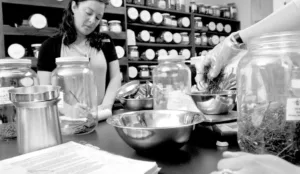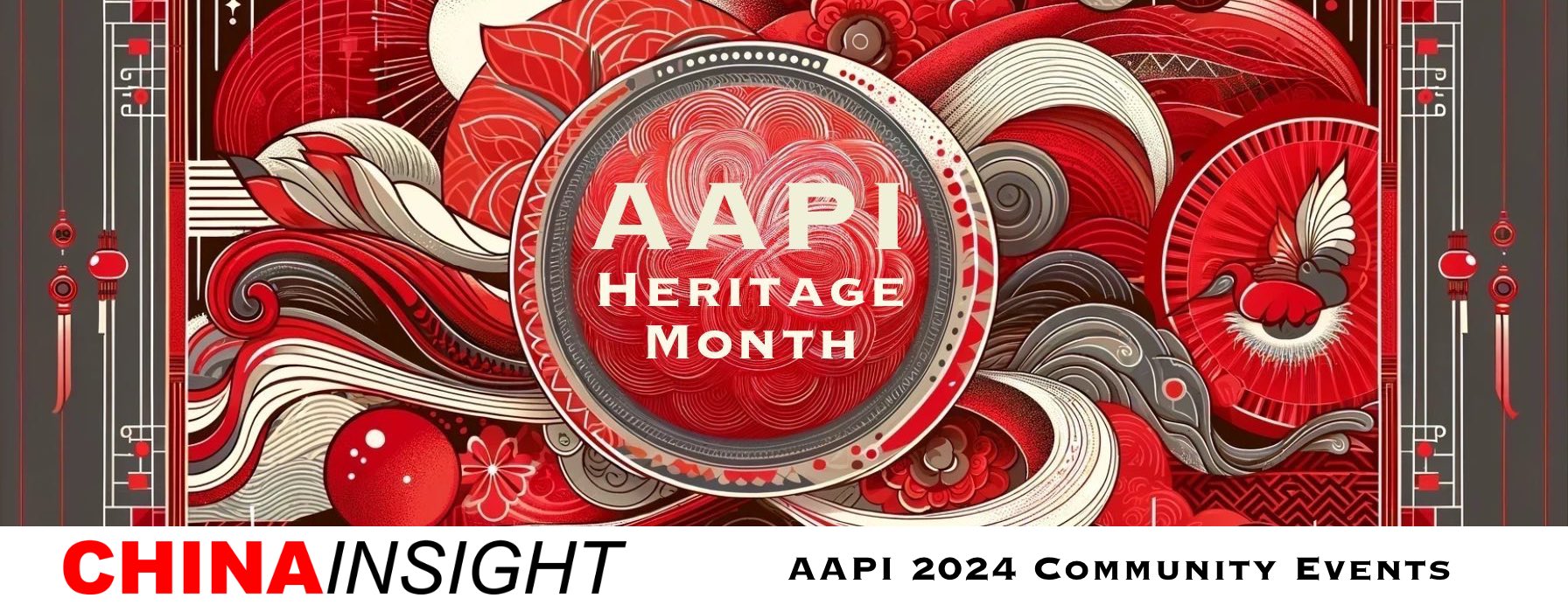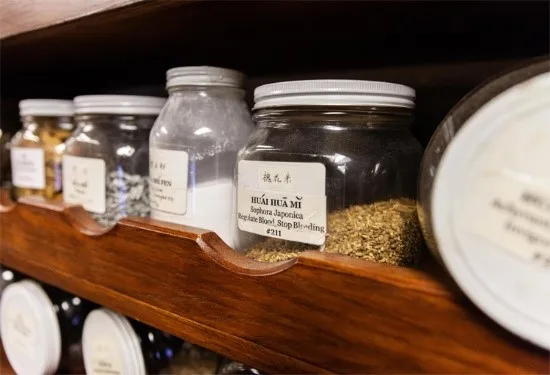By Rob Karwath, contributor
Tucked inside Northwestern Health Sciences University in Bloomington is a unique health resource that most Twin Cities-area residents have no idea exists.
One of the largest herbal dispensaries in the Midwest operates like a natural-medicine Walgreen’s or CVS. More than 800 plant-based substances — most in their raw forms, including roots, leaves and parts of plants — are prescribed to patients of licensed acupuncturists. The patients receive prescriptions for health issues ranging from everyday pain to more serious ailments such as autoimmune disorders.
The Edith Davis Herbal Dispensary, named after a local pioneer in acupuncture and integrative medicine, provides up to 200 prescriptions a week for Twin Cities-area patients of acupuncturists. It also provides a unique training ground for students at NWHSU pursuing degrees in acupuncture and traditional Chinese medicine as well as a window into the centuries-old health practices of Chinese medicine for those learning other disciplines.
“It was established as a small teaching center to help with the part-time students when the acupuncture college was just part-time and evenings,” says Jessica Frier, manager of the herbal dispensary and an adjunct professor at NWHSU. “It had a handful of people working there. But it grew as the school grew, and now it’s one of the biggest in the Midwest.”
Deb Bushway, president and CEO of NWHSU, says, “We’re proud to have such an extensive and busy herbal medicine dispensary on our campus. It’s part of what makes education and care unique at our university.”
Walk inside the dispensary and you see rows and rows of substances in glass containers, from powders to patented compounds to plants in raw form. The dispensary specializes in raw substances, which are a staple of traditional Chinese medicine.
“We are considered a compounding pharmacy, so we can make anything customized, anything unique,” Frier says. “The essence of true Chinese medicine is to make something customized for each person. Chinese medicine is all about working with the internal aspects of each individual.”
She adds: “For example, if you and I walk in with headaches, the practitioner would order, and our dispensary would make, two compounds for each of our headaches. It’s not just about treating the pain but also about treating who we are as individuals.”
The dispensary works in partnership with the natural health clinic on NWHSU’s Bloomington campus, but it also fills prescription orders from any licensed acupuncturist.
“Chinese medicine can treat anything from headaches to low back pain to internal issues such as infertility and autoimmune disorders. We treat the gamut,” Frier says. “We provide not only ingestibles but also topical medicines for skin issues and soaks for musculoskeletal rehabs.”
She adds: “There are two sides of the dispensary. We are, first and foremost, a teaching dispensary. We provide an opportunity for our students to learn about Chinese herbs and how to prescribe. The medicines are used in our student clinic, our public clinic and in our classrooms.
“We also have a public side that can fill orders from any licensed acupuncturist in any state, though most of our prescriptions come from acupuncturists in Minnesota. Our business is about half and half. We have a pretty robust external arm.”
With increased interest in treatment options beyond traditional medicine, the dispensary’s effort to stay true to the practice of Chinese medicine also sets it apart.
“All of our herbs come from China,” Frier says. “That is unique because people try to grow these medicinal herbs in the United States, and they are not of the same quality. They don’t have the same properties. Chinese herbalism is special and has special properties. For our practitioners and our patients, that is especially meaningful.
“All herbs that are imported from China go through a testing process that is managed and vetted by the FDA. The herbs are tested for quality, heavy metals, pesticides, and toxins. The companies that provide the herbs are also made to follow Current Good Manufacturing Practices (CGMP) which is an FDA standard for the manufacturing of herbal products.
“Once the herbal products pass inspection and are imported into the U.S., the distribution companies that our dispensary orders from will conduct additional independent testing, which is often at a more sensitive level to ensure not only high quality, but also that we are getting the specific plant species.”
Since many Chinese herbs are on the tariff list, prices for both raw products and pre-made herbal products have increased. Some herbs, such as ginseng, were already expensive ($150 or more per pound of high-quality Chinese ginseng) and with the new tariffs just announced, there’s an additional 15 percent tariff to that product alone. “We have seen the price of pre-made herbal products increase as much as $2.00 per bottle depending on the ingredients,” said Frier.
Interestingly enough, ginseng is a plant that can be grown in Wisconsin at a nearly identical medicinal quality to those grown in China. Wisconsin ginseng farmers have been having a similar issue with the 15 percent tariffs impacting their ability to sell to countries like Canada. So, it cuts both ways.

Dispensing Chinese herbs at the dispensary.
Editor’s Note: Unfortunately the Herbal Dispensary has ended retail sales on December 1, 2023, but will operate as an educational herbal lab with a robust inventory of raw and powdered formulas focusing on student academics and clinical training.


